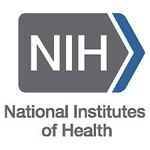Biology and Chemistry Combine to Develop In Vivo Cancer Probe

MIT Whitehead Institute senior scientist, Dr. Luke Whitesell, and Boston University’s Prof. John Porco, Director of the CMLD-BU, have received a 3-year award from the NIH entitled “Inhibiting the Heat Shock Factor 1 (HSF1)-regulated transcriptional program in cancers.” This combined biology/chemistry team aims to identify highly potent and selective HSF-1 inhibitor probes with useful activity in vivo. These inhibitors will serve as promising leads for the rapid development of useful anticancer drugs with a completely new mode of action. Luke Whitesell is a pediatric oncologist whose research in the laboratory of Prof. Susan Lindquist is focused on cellular heat shock response (HSR) and heat shock proteins, a class of molecules that guides other proteins to fold correctly. HSF1 is the master regulator of the HSR maintaining protein homeostasis during times of proteotoxic stress. It functions as a transcription factor, binding to and coordinating the expression of numerous genes, in effect, acting as a “transcriptional program.” This program can vary depending on the particular cell and stress type.

While Dr. Whitesell and his colleagues have shown that HSF1 is co-opted by tumor cells to promote their own survival at the expense of their hosts, they do not know how the HSF1 coordinates during malignancy, how it might relate to a classic HSR, and whether it impacts human cancer. They have turned to the Porco laboratory for its expertise in the synthesis of complex natural products and derivatives, as well as library synthesis and medicinal chemistry. The Lindquist laboratory’s ~300,000 compound high throughput screen for inhibitors of HSF1 identified the natural product, rocaglamide. In this work, John Porco and his group will optimize the HSF1 inhibitory activity of the rocaglate scaffold; optimize the scaffold’s pharmacological properties; and evaluate the antitumor activity of rocagalate analogs in mouse models of cancer.
 The Porco laboratory’s unique photocycloaddition methodology developed for the synthesis of various targets is the basis of the medicinal chemistry efforts in the current award to optimize these compounds as HSF-1 inhibitors.
The Porco laboratory’s unique photocycloaddition methodology developed for the synthesis of various targets is the basis of the medicinal chemistry efforts in the current award to optimize these compounds as HSF-1 inhibitors.